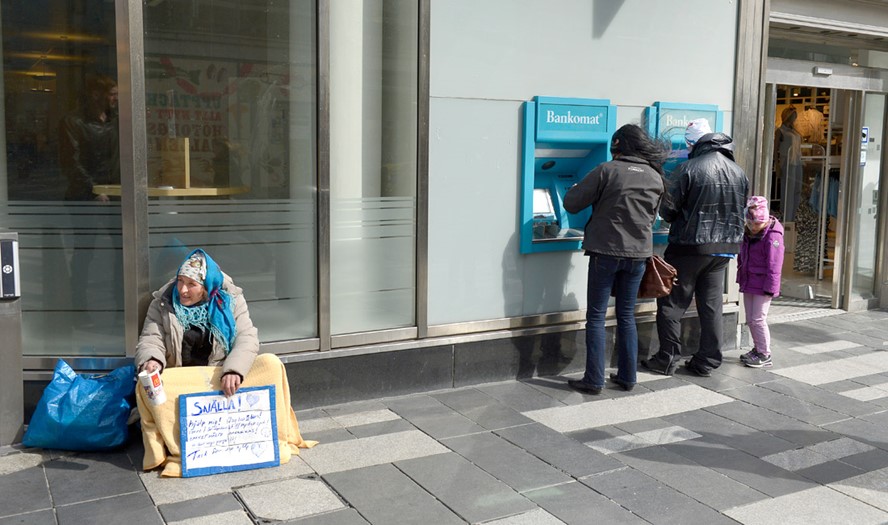PBS: Escaping Eritrea … [Read More...] about ካብ ውሽጢ ቤት ማእሰርታት ኤርትራ
Sweden – the “goodest” country in the world – is considering making it illegal for poor people to beg
Vilhelm Carlström | 19 August, 2016 | Business Insider

Sweden has been ranked the most good country in the world, when it comes to contributing to the common good of humanity. Whatever smugness that was worth may now go down the drain as the Social Democratic government opened today for legislation illegalizing begging.
“The foundation of the governments work is that we’re to protect and develop the Swedish model. It’s hardly a part of the Swedish model to solve poverty with begging,” Sweden’s Minister for Public Administration, Ardalan Shekarabi, tells Dagens Nyheter.
Ardalan Shekarabi is currently meeting with ministers from the other Nordic countries to study their models and experiences of dealing with begging, which has exploded in the recent experience, DN reports. Denmark has already outlawed begging completely, while Norway has left it up to individual municipalities to introduce such bans.
“The goal must be to eliminate begging. It is not a solution to poverty. The solution to the discrimination and exclusion in Romania and Bulgaria is not, and never will be, that we have begging on Swedish streets,” he says.
Shekarabi tells DN that the government is considering adopting measures similar to those of the neighboring countries to deal with the problem, though what stance the government will officially adopt remains undecided.
The revelation is unexpected because Prime Minister Stefan Löfwen has previously said that a ban solves nothing.
To increase the controvery, the Swedish Green Party, which is in coalition with the Social Democratic Party in government, issued a statement to the exact opposite effect of the Minister for Public Administration’s statements:
“Begging is not a crime in Sweden and the government has no intention of changing this legislation. It is not possible to ban poverty. The politics of the government is not to use criminal law against people asking others for help,” wrote Maria Ferm, group leader and spokesperson in matters of migration, according to Aftonbladet.
Political scientist Andreas Johansson Heinö tells Aftonbladet that the opposing statements may be regarded as an orchestrated probe allowing the government to test the public response before determining an official policy. Hence Sherabi’s hedge to DN:
“It’s natural that we should parttake of the experiences of other countries.”
If the two parties should really disagree in the matter it could lead to a government collapse.
